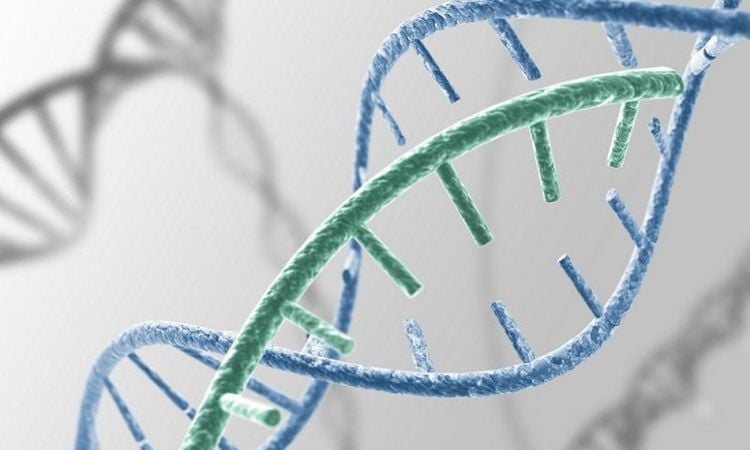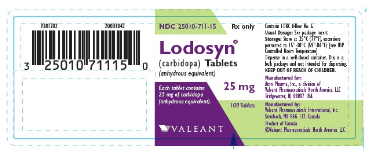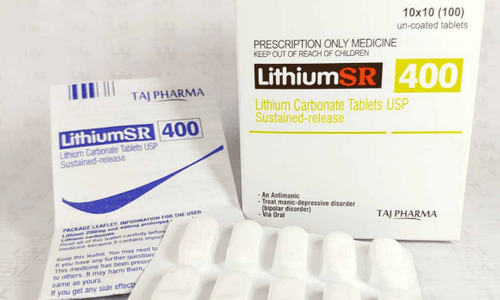This is an automatically translated article.
Personality is a combination of perception, long-term thinking about the environment and self that is expressed through many social and personal contexts. Personality disorders are diagnosed when personality traits are inflexible and inappropriate in a wide range of situations, causing distress and significant impairment in social, occupational, and role functioning. themselves in everyday life.
1. What is a personality disorder?
Personality disorder is a mental disorder in which the person has rigid and unhealthy ways of thinking, functioning and behaving. The hallmark of a person with a personality disorder is difficulty in perceiving and relating to situations and interacting with people around them. This causes problems that significantly interfere with relationships, social activities, work, and school.
In some cases, you may not realize you have a personality disorder because your way of thinking and behavior seems natural and familiar to you. And you can blame others for the difficulties in life you face.
Personality disorders usually begin in adolescence or early adulthood. There are many types of personality disorders. Some types may become less obvious throughout middle age.
2. What are the signs of a personality disorder?
Types of personality disorders are grouped into three clusters, based on similar characteristics and symptoms. Many people with one personality disorder also have signs and symptoms of at least one other personality disorder. It is not necessary to have all of the signs and symptoms listed to diagnose a personality disorder.
2.1 Group A Personality Disorder Group A Personality Disorder is characterized by odd, eccentric thinking or behavior. These include paranoid personality disorder, schizoaffective personality disorder, and schizotypal personality disorder.
Paranoid personality disorder
Widespread distrust and suspicion towards others and their motives Having unprovoked beliefs that others are trying to harm or deceive you Unreasonable doubts about loyalty trustworthiness or reliability of others Reluctance to confide in others due to unreasonable fear that others will use the information against you View innocent remarks or non-threatening situations such as insults or personal attacks Anger or hostility reactions to mild words Tends to long-term hatred Unwarranted suspicions on a regular basis that a spouse or partner is unfaithful Schizophrenia
Lack of interest in personal or social relationships, preferring to be alone Limited emotional expression Does not show interest in most activities Inability to receptive normal social signs Showing coldness or indifference towards others Little or no interest in having sex with other people

Lạnh lùng thờ ơ có thể là dấu hiệu rối loạn nhân cách mà bạn cần biết
Schizoid personality disorder
Unusual way of dressing, thinking, believing, speaking or behaving Strange perceptual experiences, such as hearing voices whispering your name Static or reflexive emotions inappropriate emotional responses Social anxiety and lack or discomfort with close relationships Indifferent, inappropriate, or suspicious reactions to others "Magic thinking" - believing you can influence people and things with your thoughts Believing some random incident or event has a hidden message just for you 2.2 Group B Personality Disorder Group B Personality Disorder is characterized by depression dramatic, overly emotional, or unpredictable thoughts or behavior. These include antisocial personality disorder, borderline personality disorder, dramatic personality disorder, and narcissistic personality disorder.
Antisocial personality disorder
Not caring about other people's needs or feelings Repeatedly lying, stealing, using aliases, defrauding others Legal issues Multiple violations rights of others Aggressive, often violent behavior Disregard for the safety of oneself or others Impulsive behavior Irresponsible behavior No remorse for wrongdoing Borderline personality disorder
Impulsive and risky behavior, such as unsafe sex, gambling, or binge eating Unstable self-image Unstable and stressful relationships Mood swings, often an interpersonal stress response Suicidal behavior or threats of self-injury Intense fear of being alone or abandoned Feelings of emptiness Frequent, intense expressions of anger Related delusions stress-related Dramatic personality disorder
Relentless attention-seeking Expression of excessive emotion, drama, or sexual provocation sex to get attention Strong statements with other opinions, but little facts or details to support them Easily influenced by others Shallow, rapidly changing emotions Too concern about appearance Thinking that relationships with others are closer than they really are Narcissistic personality disorder
Believing oneself to be special and more important than others Imagining power, success and attractiveness Failure to recognize the needs and feelings of others Exaggerating achievements or talents Expecting constant praise and admiration Arrogance Unreasonable expectations of favors and advantages, often taking advantage of others other Jealous of others or believe that others are jealous of you

Kiêu ngạo là một trong các dấu hiệu rối loạn nhân cách kỷ ái
Avoidant personality disorder
Oversensitive to criticism or rejection Feeling inadequate or unattractive Avoids activities or work that require interpersonal contact Socially inhibited , timid and isolated, avoiding new activities or meeting strangers Extremely shy in social situations and personal relationships Fear of opposition, shame, or ridicule Secondary personality disorder dependent
Overly dependent on others and feeling cared for Submissive or clingy behavior Fear of taking care of or defending themselves if abandoned Lack of confidence, need lots of advice and support the reassurance of others to make even minor decisions Difficulty starting or implementing projects on their own due to lack of confidence Rarely disagreeing with others, fear of opposition Poor tolerance or abuse , even if there are other options Urgent need to start a new relationship when the close relationship has ended Obsessive-compulsive personality disorder
Multi-concern n details, order and rules Excessive perfectionism, leading to dysfunction and suffering when perfection is not achieved, such as feeling unable to complete a project because you cannot meet their own rigorous standards Desire to control people, tasks, and situations, and inability to delegate tasks Neglect friends and enjoyable activities because of overcommitment to work or projects Inability to remove damaged or worthless items Rigidity and stubbornness Inflexibility about ethics, or values Strict control over budgeting and money spending Disorder Obsessive-compulsive personality is not the same as obsessive-compulsive disorder, a type of anxiety disorder.
When to see a doctor?
If you have any signs or symptoms of a personality disorder, see your doctor or mental health professional. If left untreated, a personality disorder can cause serious problems in your life and can get worse.
3. What causes personality disorder?
Personality is the combination of thoughts, feelings and behaviors that make each person unique. It is how you see, understand, and relate to the outside world, and how you see yourself. Personality forms in childhood, formed through the interaction of:
Gene. Certain personality traits can be passed on to you by your parents through your genes. These traits are sometimes referred to as your temperament. Habitat. This has to do with your surroundings, where you grew up, events that have occurred, and relationships with family members and others. Personality disorders are thought to be caused by a combination of genetic and environmental influences. Your genes can make you more susceptible to personality disorders, and life circumstances can trigger signs of an overt personality disorder.

Gen là một trong các yếu tố di truyền khiến bạn mắc rối loạn nhân cách
4. Risk factors
Although the exact cause of a personality disorder is unknown, several factors appear to increase the risk of developing or causing a personality disorder, including:
Family history of a personality disorder or other mental illness Violent, unhappy or chaotic family life in childhood Diagnosed with childhood conduct disorder Structural and chemical changes to the brain Complications
Personality disorders can significantly disrupt the lives of both the person and those who care for the person. Personality disorders can cause problems with relationships, work, or school, and can lead to social isolation or alcohol or drug abuse.
Please dial HOTLINE for more information or register for an appointment HERE. Download MyVinmec app to make appointments faster and to manage your bookings easily.













